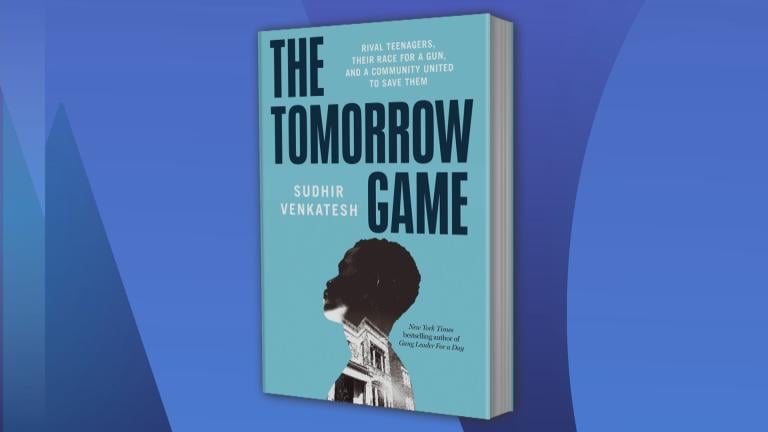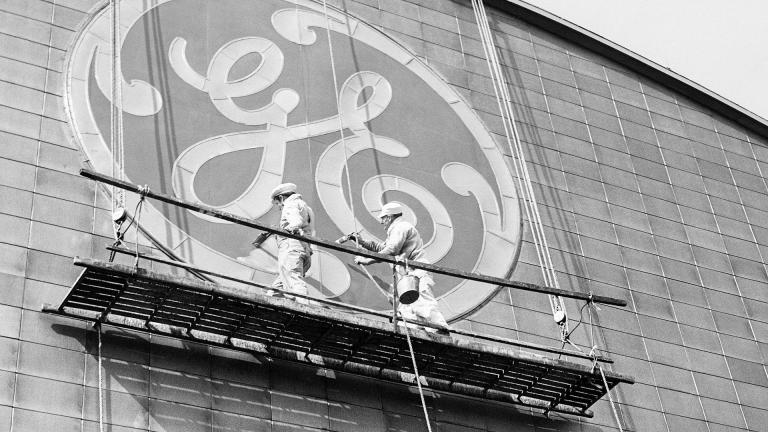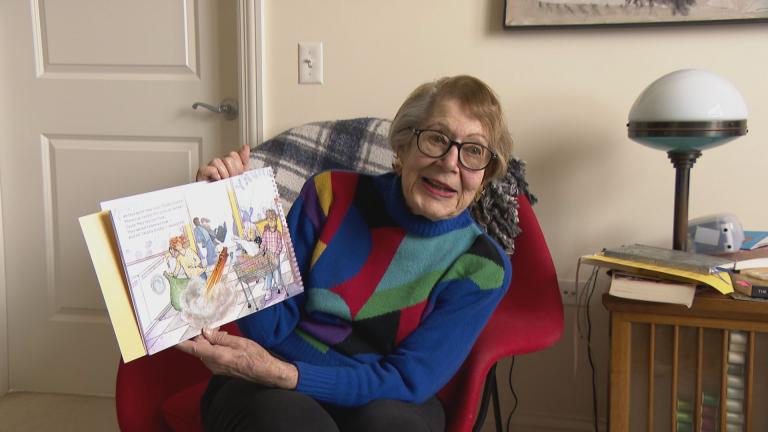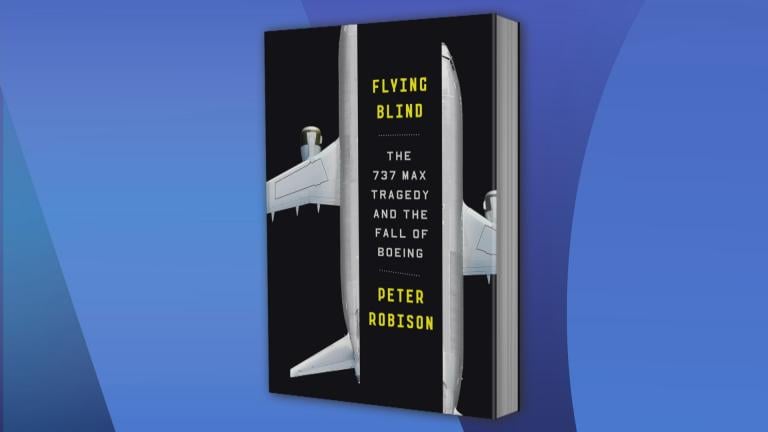From the mid-1960s to the mid-1970s, Hunter S. Thompson established himself as a countercultural icon.
Thompson’s drug-addled, quasi-autobiographical 1972 novel “Fear and Loathing in Las Vegas” established the gonzo journalism genre, which incorporated subjective and stream-of-consciousness styles of writing.
During Thompson’s pivotal 1964-1974 period, he followed the Hells Angels biker gang, witnessed the tumult of Chicago’s 1968 Democratic National Convention and covered the 1972 presidential campaigns of Richard Nixon and George McGovern.
A new book called “Freak Kingdom: Hunter S. Thompson’s Manic Ten-Year Crusade Against American Fascism” examines this prolific writing phase as well as the Thompson’s deleterious decision to use drugs like the psychostimulant amphetamine Dexedrine to increase his output.
Author Timothy Denevi, an associate professor at George Mason University, strove to detail Thompson’s work as a freelance journalist before epitomizing his free-flowing, colorful writing style.
“It wasn’t until he learned all the rules of journalism that he began to break them with his more formally inventive style that we identify him with in Rolling Stone,” Denevi said. “But along the way, as a hardworking journalist, he was present for many of the seminal moments of the 20th century.”
Denevi joins us in discussion. Below, an excerpt from “Freak Kingdom.”
THE BATTLE OF MICHIGAN AVENUE
On the evening of Wednesday, August 28th, 1968, Hunter S. Thompson, a thirty-year-old journalist working on his second book, was standing at the corner of Michigan and Balbo, his motorcycle helmet stowed in the large blue kit bag at his shoulder.
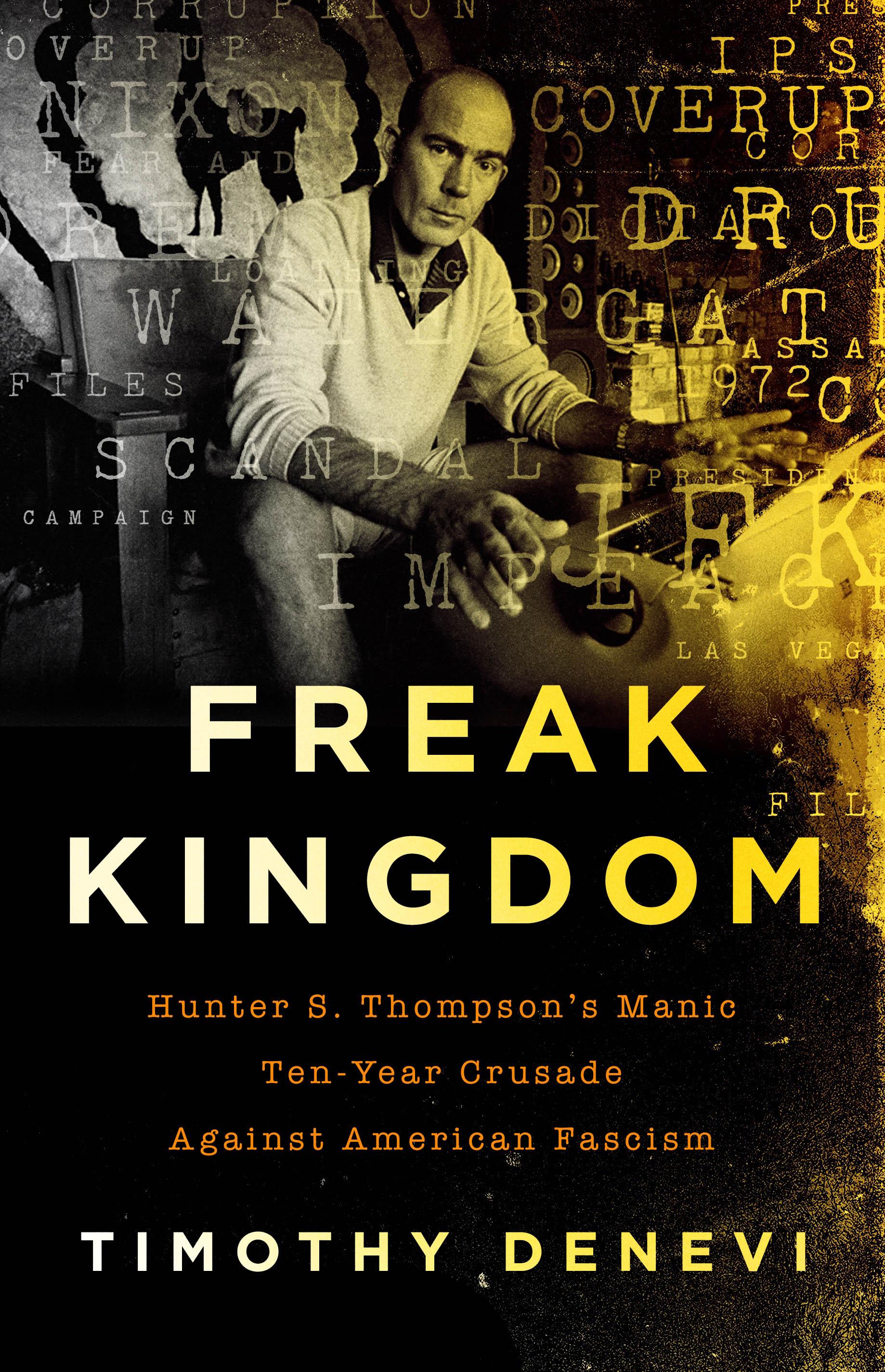 Around him, seven thousand protestors had penned themselves into the four-way intersection, onto which the lake-view suites of both the Sheraton Blackstone and the Conrad Hilton looked down. From across the city evening was coming on—a late summer twilight, arid and clear, the Chicago skyline throwing its great tusks of shadow toward the lake.
Around him, seven thousand protestors had penned themselves into the four-way intersection, onto which the lake-view suites of both the Sheraton Blackstone and the Conrad Hilton looked down. From across the city evening was coming on—a late summer twilight, arid and clear, the Chicago skyline throwing its great tusks of shadow toward the lake.
Thompson had taken up a position against the windows of the Hilton’s ground-level restaurant, the Haymarket Inn, where, from behind a row of yellow police barricades, he and other journalists stood alongside a number of Democratic staffers and delegates who’d come down from their rooms with their spouses to see what was going on.
Just before 8:00 p.m., Deputy Superintendent James Rochford, the on-site commander in charge of convention security, received word that additional reinforcements had begun to arrive—along with a contingent of paddy wagons to transport prisoners—and, to the officers gathered around and off the perimeter, he gave the order: Clear the intersection.
The Chicago police approached from both ends of Michigan and Balbo in tight military formation. Then they broke into a full run, charging into the crowd, attacking everyone; they swung their billy clubs with overhand strokes, in the way you would through lumber, releasing their weapons down onto the heads of their tar- gets. They were wearing sky-blue helmets with thick, black chin- straps. For the most part they were young men from Irish and Polish and German and Italian families. Before the assault they’d taken off their badges and nameplates; they knew that the order to attack had been delayed over half an hour—deliberated upon— and once the word came down through the chain of command, arriving like a small sum of money or an equally modest fine, there could be no doubting that it represented the official position of Chicago’s highest civilian authorities.
A new round of tear gas volleys shrouded the intersection. In the burning fog you could hear clubs striking bone. Panicked foot- steps. And the screams, their orchestral pain. A breeze came up from the lake. It was night. A new wave of cops arrived. Together they chanted “Kill! Kill! Kill!”—an incantation—as they approached the intersection.
The protestors tried to flee. “Hey,” a young man with a mustache said. “Goddamn.” A cop had doubled him over with a club to the gut and was tossing him into one of the paddy wagons. At that moment a television cameraman was filming these wagons, and now this cop turned and attacked him, too. A doctor in a white coat and Red Cross armband ran to help and was knocked to the ground by pairs of police, who kept beating him as he tried to crawl away.
There were plainclothes cops. White-shirted cops. Some had antennas at their backs to relay radio instructions. Others wore long black jackets with chevrons at the shoulders. A few were on three-wheeled motorcycles—one of whom could be heard, as he ran people over, shouting, “WAHOO!”
For fifteen unbelievable minutes the Battle of Michigan Avenue raged on. The entire time Hunter Thompson was standing behind the yellow barricades with his back to Hilton’s ground-floor restaurant, watching it all up close.
He and the other journalists were still surrounded by older party officials and their wives; from the start it had been the safest spot. Initially there’d even been chants of “the whole world is watching!” But now they were silent. The cops, taking control of the intersection, were preparing a new assault.
On Michigan Avenue—from both the north and the south — two fresh lines of police were advancing. They came together at the Hilton, a classic pincer formation, and the street’s remaining protestors, perhaps five hundred, suddenly had nowhere to go. The cops kept pressing them back—in the direction of the hotel, its floor-level restaurant: the exact spot where Thompson and the others were standing.
Now the officers charged. They sprayed mace from handheld cans and came in fast behind the wet fogging bursts. The protestors surged back over the barricade. Thompson was forced against the Hilton. “Stay together! Stay together!” some of them were shouting. A few tried to break through the line in groups but they were quickly separated and beaten. The cordon was complete; half a thousand people were pinned against the plate-glass windows of the Conrad Hilton Hotel. The police gathered again and blitzed: their final assault.
Thompson reached frantically for the motorcycle helmet in his bag. He slipped it on just as the cops got to him. Bodies at his back and at his feet. And then the overhand blow—the billy club coming down on his motorcycle helmet, a plastic-and-leather dome that would’ve amplified into his ears the deafening bang. At the same time it had protected his skull and brain. Which meant that, unlike the other concussed men and women lying around him, he could still register with all his faculties intact the unmistakable message: the civic authorities were using indiscriminate violence to silence their legitimate political opposition and journalistic ob- servers. Thompson knew immediately that if they were willing do this—if on national television the rights inherent to the Constitution of the United States could be completely and unequivocally discarded—then they could do anything.
From behind, he heard a new crash. Now the crowd was being forced through the Haymarket’s plate-glass window, which loudly shattered; men and women tumbled helplessly down into the restaurant. The police followed them in, leaping, clubs drawn.
Thompson was a few feet away. Around him the cops shoved past.What was happening to the people who only minutes before were standing next to him? Were they down there now on the ruthless glass-strewn floor of the Haymarket? Who was dying and who was safe? Was it only a matter of time until he’d be next? Suddenly he was sure he was about to be hit by a hail of bullets—fired from above, from the rooftop—the shot exploding in his chest before he’d even heard its report. There was nothing he could do. “I have never been caught in an earthquake,” he’d say about this moment, “but I’m sure the feeling would be just about the same. Total panic and disbelief—with no escape.” Something was com- ing that he couldn’t see, speeding toward him from the menace of the night. At that instant, pinned against the shattered wall of the Haymarket, he was overcome with the terror and paralysis and regret of what it means to be hit and then, as if in a nightmare, go down.
It was the sort of fear Bobby Kennedy had been made to feel, two months earlier, during those waning minutes on the Ambassador kitchen’s concrete floor when he could still ask if everyone else was okay, aware that his life was leaving him but helpless to do anything but watch it go. We’re talking about the saddest moment of all—the one in which you finally realize you’re beyond every- one else’s reach.
Inside the Hilton, a protestor with a severed neck artery was slumped against the wall. Another, his legs paralyzed, crawled on his elbows. The cops beat them anyway—beating the diners who’d been sitting in the Haymarket, too. Then they moved on to the lobby. “Clear the floor!” one of them shouted. By now they didn’t care about arresting people. The intersection was secure.
Just then Hunter Thompson saw an opening; through the remaining crowd of police and wounded protestors he sprinted to the Blackstone, about sixty feet away, where the cops near the entrance clubbed him back. “I live here goddamnit!” he screamed. “I’m paying fifty dollars a day!” He was shoved into the door. He pulled out his room key and waved it overhead until finally some- one let him push through into the lobby.
In his room he locked and chained his door. His eyes burned. His clothes stank with chemicals. His gut ached. But he was unharmed. He wet a cloth and held it carefully to his face to soak out the tear gas. Then he sat on the bed, his legs crossed. His entire body was shaking. He couldn’t write. None of it made sense. The whole week the police had known that he was a member of the press; that the men and women they’d forced through the Haymarket window were political officials; that a number of the nonviolent young protestors worked as campaign staffers for Democratic candidates. But then, that was the horrific point. Years later, looking back on this moment, he’d write: “These bastards knew my position, and they wanted to beat me anyway . . . they were powerful enough to break anybody who even thought about getting in their way . . .What I learned, in Chicago, was that the police arm of the United States government was capable of hiring vengeful thugs to break the very rules we all thought we were operating under.”
The violence he’d just witnessed was clearly state-sanctioned. Political. Fascistic. And it had originated within the core electoral processes of the democratic system it now threatened. In this sense, we were its authors and performers and intended audience. All along this violence had been with us—was us: a song for America we’d been singing from the start.
It was just after 9:00 p.m. Down at the amphitheater the balloting for the nomination was about to begin. Thompson still had his press pass—it’d been around his neck the entire time—and he planned to put it to use, now, for something other than an invitation to a beating.
Follow Evan Garcia on Twitter: @EvanRGarcia
Related stories:
Reflections on Turning 100 with Chicago’s Remarkable Timuel Black
Rosellen Brown Spins Epic Tale of Gilded Age Chicago in ‘Lake on Fire’
Biography Explores ‘Love and Strife’ of Legendary Author Saul Bellow

